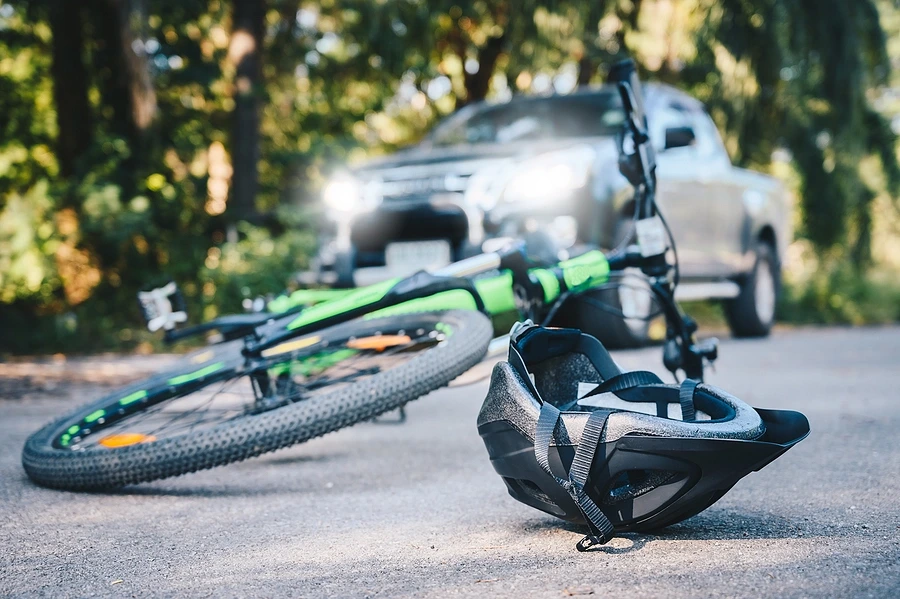Understanding Bicycle Accident Insurance Claims in South Carolina

Bicycle accidents can result in serious injuries, extensive medical bills, and unexpected expenses. In Anderson, South Carolina, understanding how insurance claims work after a bicycle accident is essential for protecting your rights and pursuing fair compensation. Insurance claims can be complex, and knowing the process helps ensure you do not accept less than you are entitled to.
The Role of Insurance in Bicycle Accidents
When a bicycle accident occurs, insurance often plays a critical role in covering damages. Several types of insurance may come into play:
-
Auto Insurance: If a motor vehicle caused the accident, the driver’s liability insurance may cover your medical expenses, property damage, and lost wages.
-
Health Insurance: Your own health insurance may pay for medical treatment initially, especially if the at-fault driver’s insurance is slow to respond.
-
Uninsured or Underinsured Motorist Coverage: This coverage protects you if the driver responsible has insufficient or no insurance.
-
Personal Liability Coverage: Homeowners or renters insurance can sometimes cover injuries sustained on private property, including bicycle accidents.
Each type of insurance has its own rules, coverage limits, and processes for filing claims. Knowing which policies apply is crucial for maximizing compensation.
Steps to Take Immediately After a Bicycle Accident
The actions you take immediately after an accident can affect your ability to recover damages:
-
Seek Medical Attention: Prompt medical care ensures injuries are properly treated and documented. Some injuries, such as concussions or internal trauma, may not appear right away.
-
Call Law Enforcement: A police report provides an official record of the accident and can help establish liability.
-
Document the Scene: Take photos of vehicles, road conditions, bicycle damage, and any visible injuries.
-
Collect Contact Information: Gather names, phone numbers, and addresses of other drivers, witnesses, and involved parties.
-
Preserve Evidence: Keep your bicycle, clothing, and any personal items involved in the accident until your claim is resolved.
These steps create a solid foundation for your insurance claim and any potential legal action.
Filing a Bicycle Accident Insurance Claim
Filing an insurance claim begins with notifying the appropriate insurance company. Typically, the at-fault driver’s auto insurance is responsible for handling claims. Provide factual information about the accident, including:
-
The date, time, and location of the accident.
-
A description of how the accident occurred.
-
Photos, videos, or other evidence supporting your version of events.
-
Documentation of injuries and property damage.
Avoid speculating about fault or injury severity. Insurance adjusters will conduct their own investigation, and statements admitting blame can harm your claim.
Understanding Comparative Negligence in South Carolina
South Carolina follows a modified comparative negligence system. This means your compensation may be reduced if you share some responsibility for the accident. For example, if a driver’s negligence caused the accident but you were also partially at fault for failing to follow traffic rules, your award may be reduced by your percentage of fault.
Understanding comparative negligence is important when negotiating with insurance companies or considering legal action. A personal injury lawyer can help evaluate how fault may impact your potential recovery.
Common Challenges in Bicycle Accident Claims
Insurance claims after bicycle accidents can be complicated. Common challenges include:
-
Disputed Liability: Drivers or insurers may deny responsibility or argue that your actions contributed to the accident.
-
Insufficient Documentation: Lack of photos, witness statements, or medical records can weaken your claim.
-
Delayed Medical Treatment: Waiting to see a doctor can create questions about whether injuries were caused by the accident.
-
Low Settlement Offers: Insurance companies often offer settlements below the full value of your damages.
Having an experienced personal injury attorney can help navigate these challenges and protect your interests.
Calculating Damages in a Bicycle Accident
Insurance claims typically seek to recover various types of damages, including:
-
Medical Expenses: Costs for hospital visits, surgeries, medications, therapy, and follow-up care.
-
Property Damage: Repairs or replacement of your bicycle, helmet, and other damaged belongings.
-
Lost Wages: Compensation for time missed from work due to injuries or recovery.
-
Pain and Suffering: Non-economic damages for physical pain, emotional distress, and reduced quality of life.
Accurately calculating damages requires thorough documentation and sometimes expert input, particularly for long-term injuries or complex medical treatment.
Why Legal Representation Is Important
A South Carolina personal injury lawyer can provide critical assistance in bicycle accident insurance claims. Legal representation helps to:
-
Evaluate liability and ensure the right parties are held accountable.
-
Collect and preserve evidence effectively.
-
Communicate with insurance companies and negotiate fair settlements.
-
Advise on filing a lawsuit if a settlement does not fully cover your damages.
Legal guidance increases the likelihood that you will receive compensation that reflects the true extent of your injuries and losses.
Tips for Maximizing Your Claim
To strengthen your insurance claim after a bicycle accident in Anderson, consider these tips:
-
Act Quickly: Notify the relevant insurance companies promptly.
-
Keep Detailed Records: Document all medical treatment, expenses, and time off work.
-
Avoid Social Media Discussions: Public posts about the accident can be used against you.
-
Follow Medical Advice: Completing recommended treatment demonstrates the seriousness of your injuries.
-
Consult a Lawyer Early: Early legal guidance can prevent mistakes that reduce your potential compensation.
Conclusion
Bicycle accidents in Anderson, South Carolina, can have lasting effects, both physically and financially. Understanding how insurance claims work is essential for protecting your rights and pursuing fair compensation. By seeking medical care, documenting the accident, preserving evidence, and consulting a personal injury lawyer, you can navigate the complexities of insurance claims more effectively.
Insurance companies often attempt to minimize payouts, making professional legal guidance crucial. Acting quickly and following the proper steps ensures that your claim reflects the full extent of your injuries, property damage, and other losses, allowing you to focus on recovery while protecting your legal rights.
